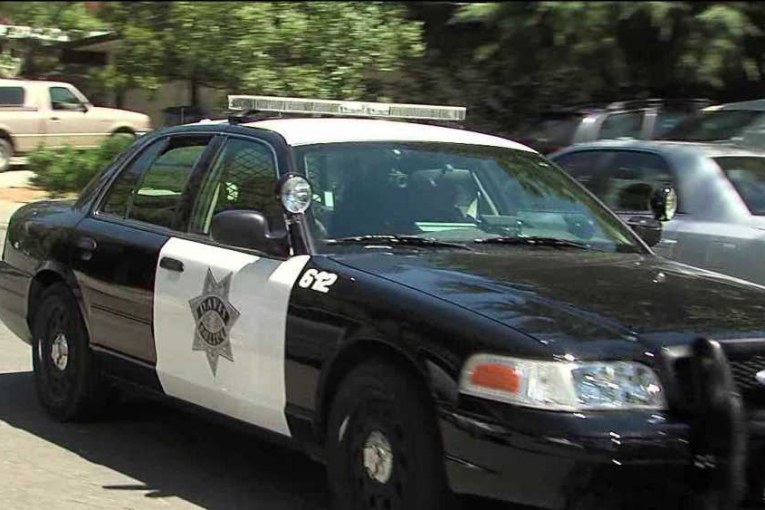

By Madison Forwood
DAVIS — Upon reviewing the Davis Police Department’s 2020 Surveillance Technology report, the Police Accountability Commission found that the report was too lengthy and difficult to decipher.
At the Police Accountability Commission (PAC) meeting on Sept. 14, the members discussed the 2020 Surveillance Technology report prepared on behalf of the Davis Police Department (DPD), with an emphasis on the dependence for body and dashboard camera footage to review incidents where the public and police officers interact.
Because of the report’s structure and language, the commission did not offer specific logistical changes to the surveillance technology utilized by the DPD. The chair of the commission, Dillan Horton stated, “I don’t think we are presently able to make a decision on the current use of surveillance technology.”
However, the PAC was in strong agreement that the Davis City Council should request a more risk based overview of the annual use of surveillance technology report. Commission members offered the structure of division for the surveillance reports to be risked based in the following categories: loss of trust, loss of self determination, discrimination and economic loss.
At the Davis City Council meeting on Sept. 22, 2020, under item 4, “Surveillance Technology Annual Reauthorization,” the Davis Police Chief Darren Pytel presented the annual report concerning surveillance equipment and protocol. He noted that much of the surveillance technology utilized by the DPD is also utilized by other government entities including the Department of Public Works and Information Systems.
The city’s ordinance on surveillance technology mandates an annual report and reauthorization review be presented to the Davis City Council each fiscal year.
Pytel reviewed 16 technological items with the intent of having each piece reauthorized by the City Council.
He acknowledged the concerns from the PAC about the lengthy document, but pointed to the ordinances’ directive for the complex, detailed report of surveillance  technology.
technology.
He stated, “The actual written report for the staff report contains all of the information that is required under the surveillance technology ordinance. If you read it, you realize that it’s really long. That is one of the things we will come back and talk about, the amount of paper that is generated for the annual and continuing uses, it’s a bit excessive, I do apologize for that but it is what is required under the current ordinance.”
There were two public comments which requested increased transparency and accessibility in future surveillance technology reports. The chair of the PAC, Dillan Horton made a public comment at the meeting, “As noted in your presentation, the PAC did have a number of discussions about this report and felt that much more information was needed about the use of these technology items or the items that were used, for the commission and for the public to make a determination about if these uses were appropriate or if policy recommendations were necessary to make the use of these technology items more aligned with community values.
“I do hope that the council takes up those items to expand the amount of information given to the public and the PAC about the use of surveillance technology,” he continues. “I hope going forward that it can be a process that the public can engage in, in a more productive fashion.”
Pytel went on to review the individual technological devices in order of highest usage. He noted that the DPD utilized the surveillance technology of body and dashboard cameras every day. The dashboard camera turns on each time officers activate their lights, and body cameras remain on at all times.
Pytel stated, “There is nothing notable to report for the use of those. They were used in many criminal investigations and contacts. I don’t believe we had any violations of our policies in the past year.”
Ultimately, Pytel presented the report on varying surveillance technology such as the CareTrak system, Cellebrite, GPS locators, license plate readers and traffic cameras within the city. CareTrak is a city operated technological device to find seniors or individuals with mental health illnesses, in circumstances where they become lost. Cellebrite is utilized for felony criminal investigations, with a warrant to look through an individual’s phone.
Pytel stated that there was nothing notable or out of the ordinary in terms of use of surveillance technology on behalf of varying government entities. He also stated that the EOD (Explosive Ordnance Disposal) robot was only deployed once for a suspicious package, and live traffic cameras were not deployed for this reporting period.
The Council members moved to reauthorize the use of all current surveillance technology within the city of Davis, and some even offered words of praise and encouragement.
Vice Mayor Lucas Frerichs stated, “I appreciate the work that has been done again by the PD and the chief but again I appreciate the efforts of PAC in reviewing it. I think there are some good suggestions about how to proceed in the coming months and the year ahead. I recognize from the Chief’s comments there is an opportunity to do that. I recommend approval of this item.”
The Council members did not publicly discuss the suggestions of the PAC for a more transparent, and accessible surveillance technology report at the meeting.
Assistant City Manager Kelly Stachowicz clarified over email that this year’s surveillance report has been released, and there will not be any changes to it. However, she stated, “Council agreed with staff (and the PAC) that the reports should be easier to digest. We will be looking at the ordinance over the next few months to see how we might accomplish that.”
Support our work – to become a sustaining at $5 – $10- $25 per month hit the link:
